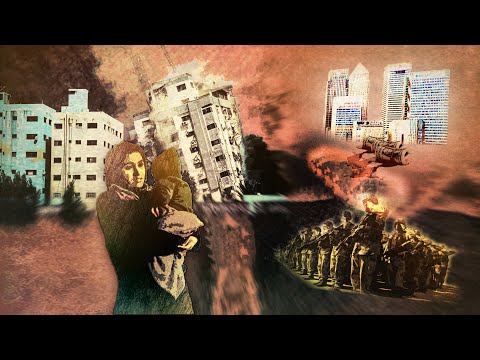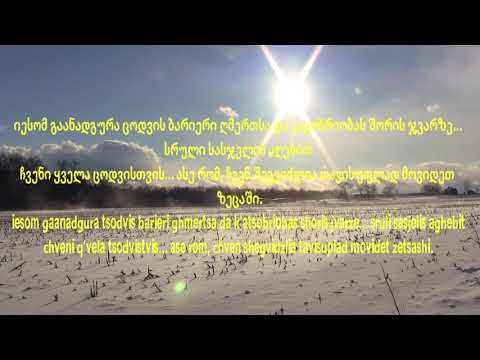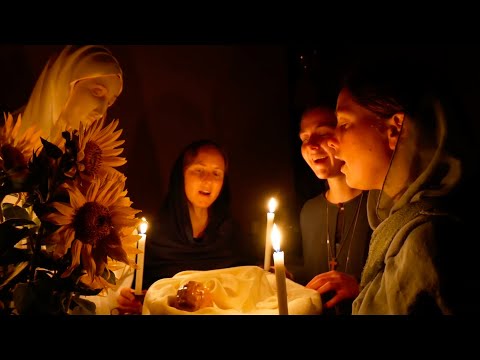What we did in Tbilisi, Georgia 2022 (Raoul's Version) #tbilisi #travelgeorgia #georgien
Tbilisi: თბილისი Georgian pronunciation: [tʰbilisi]), in some languages still known by its pre-1936 name Tiflis[a] (/ˈtɪflɪs/ TIF-liss),[8] is the capital and the largest city of Georgia, lying on the banks of the Kura River with a population of approximately 1.5 million people. Tbilisi was founded in the 5th century AD by Vakhtang I of Iberia, and since then has served as the capital of various Georgian kingdoms and republics. Between 1801 and 1917, then part of the Russian Empire, Tiflis was the seat of the Caucasus Viceroyalty, governing both the northern and the southern parts of the Caucasus. Because of its location on the crossroads between Europe and Asia, and its proximity to the lucrative Silk Road, throughout history Tbilisi was a point of contention among various global powers. The city's location to this day ensures its position as an important transit route for energy and trade projects. Tbilisi's history is reflected in its architecture, which is a mix of medieval, neoclassical, Beaux Arts, Art Nouveau, Stalinist and the Modern structures. Historically, Tbilisi has been home to people of multiple cultural, ethnic, and religious backgrounds, though it is overwhelmingly Eastern Orthodox Christian. Its notable tourist destinations include cathedrals Sameba and Sioni, Freedom Square, Rustaveli Avenue and Agmashenebeli Avenue, medieval Narikala Fortress, the pseudo-Moorish Opera Theater, and the Georgian National Museum. The climate in Tbilisi mostly ranges from 20 to 32 °C (68 to 90 °F) in the summer and −1 to 7 °C (30 to 45 °F) in the winter. The name Tbilisi derives from Old Georgian t′bilisi (Asomtavruli: ႧႡႨႪႨႱႨ, Mkhedruli: თბილისი), and further from tpili (Modern Georgian: თბილი, 'warm', itself from Old Georgian: ႲႴႨႪႨ ṭpili). The name T′bili or T′bilisi (literally, 'warm location') was therefore given to the city because of the area's numerous sulfuric hot springs. Until 1936, the name of the city in English and most other languages followed the Persian pronunciation[9] Tiflis, while the Georgian name was ტფილისი (Tpilisi).[10] On 17 August 1936, by order of the Soviet leadership, the official Russian names of various cities were changed to more closely match the local language.[10] In addition, the Georgian-language form T′pilisi was modernized on the basis of a proposal by Georgian linguists; the ancient Georgian component ტფილი (tpili, 'warm') was replaced by the newer თბილი (t′bili).[10] This form was the basis for a new official Russian name (Тбилиси Tbilisi). Most other languages have subsequently adopted the new name form, but some languages such as Turkish, Persian, Greek, Spanish and German have retained a variation of Tiflis. On 20 September 2006, the Georgian parliament held a ceremony celebrating the 70th anniversary of the renaming. Some of the traditional names of Tbilisi in other languages of the region have different roots. The Ossetian name Калак (Kalak) derives from the Georgian word ქალაქი (kalaki) meaning simply 'city'. Chechen and Ingush names for the city use a form similar to or the same as their names for the country of Georgia (Гуьржех Gürƶex) as does the historical Kabardian name (Курджы Kwrdžə), while Abkhaz Қарҭ (Ķarţ) is from the Mingrelian ქართი (Karti). What we did in Tbilisi, Georgia 2022 (Raoul's Version) #tbilisi #travelgeorgia #georgien What to do in Tbilisi in a day What to do in Tbilisi in 3 days What to do in Tbilisi
Georgian2go-ის სხვა ვიდეოები
 02:17
02:17
Merry Christmas and a Happy New Year! გილოცავთ შობ...
 12:46
12:46
Learn Georgian with georgian2go - plazhi/The beach...
 01:52
01:52
Meet Anna! გაიცანით ანა!
 05:07
05:07
Learn Georgian with Georgian2go - to be (4) #learn...
 05:36
05:36
Learn Georgian with Georgian2go - Plural I (5) #le...
 05:09
05:09
German Guy Speaks Georgian | გერმანელი ლაპარაკობს...
 05:54
05:54
Learn Georgian with georgian2go - Gamarjoba (1) #l...
 04:02
04:02
The Georgian Loanword Song - Georgian2go #learngeo...

მსგავსი ვიდეოები

Ο Βοσκός (The Sheperd) feat. Lasha Rukhadze
Harvey Moof

Mountain bike tour in Georgia 2020 | ველო ტური საქართველოში...
Georiders

2 Day Juta to Roshka Hike via Chaukhi Pass and Abudelauri La...
Going The Whole Hogg | Kim \u0026 Del

Georgian Heaven - ქართული სამოთხეkartuli samotkhe - ra surs...
WHAT EVERYONE DESERVES TO KNOW ABOUT HEAVEN

დემოკრატიის კვალდაკვალ / In the Footsteps of Democracy / ლექ...
Konrad Adenauer Foundation South Caucasus

Meetingn Prime Minister of Albania | შეხვედრა ალბანეთის პრემ...
Saakashvili Mikheil - Саакашвили Mихаил

EXPLORING THE OCEAN (1963 Y.)
Hubble G

IAVNANA (იაავნანანა) : Georgian lullaby
Harpa Dei